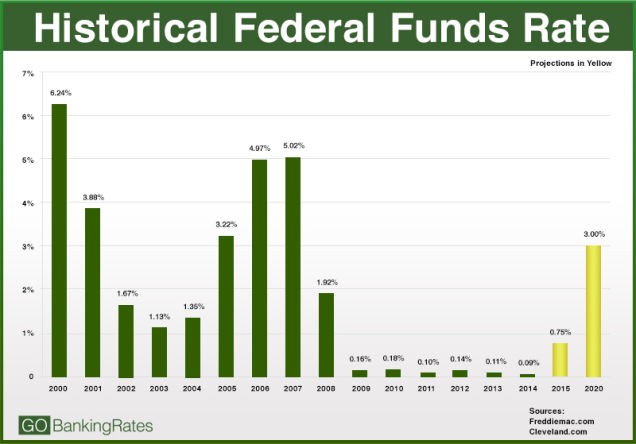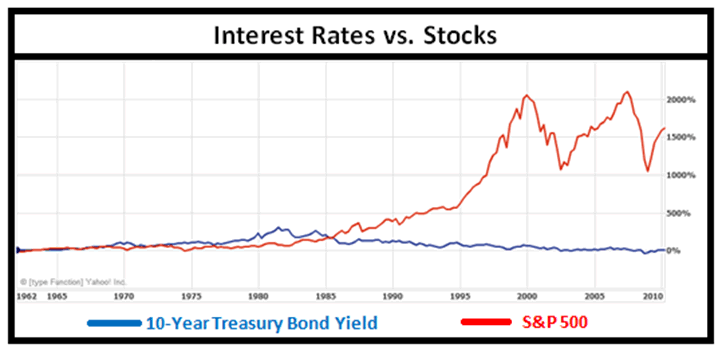How does interest rate affect stock markets
Post on: 28 Май, 2015 No Comment

How does interest rate affect stock markets?
by J Victor on November 3rd, 2011
WHY SHOULD YOU KNOW ABOUT INTEREST RATES?
Interest Rate in simple words means the cost of borrowing funds. It is the payment we make to the lender for the facility of using his money for our own purpose. Many times our spending decisions are also guided by the interest burden that we would be bearing.
But, more than the returns we should be concentrating on real returns on our savings (real return = interest rate- inflation). The ‘real returns’ concept has been already discussed in our previous article titled ‘Inflation’. Even as consumers, interest rate is an integral part of our spending habit as we borrow from the bank for buying house, cars, house old items etc. For the business community interest rate is also very important as they borrow money from bank for investment activities like capacity expansion, setting up of plants, acquisitions, modernization etc. So interest rates play a critical role in a business’s profitability and hence, on stock prices.
INTEREST RATES DECIDE WHERE WE INVEST.
How many of us would invest in stock markets if our bank would pay 12% interest in fixed deposits? Many of us will prefer to deposit money in that bank than invest in stocks (as well as mutual funds). Why? Because, we have the opportunity to earn higher returns at very low risk. As a result, funds move out of stock market affecting the stock markets adversely.
THE IMPACT OF HIGHER INTEREST RATES .
After reading the above paragraph, some of you might have thought that it would be great to get a 12% risk free return annually. Unfortunately, that’s not the case. If the bank is paying you 12% interest, it would have to charge its customers anywhere between 15% to 18% on their loans. (Customers here would mean anyone who borrows money from bank including big corporates, small and medium enterprises, farmers and individuals). This, inturn, will result in higher borrowing costs for them and thereby disturbs the overall profitability. A drop in profits would result in stock prices coming down.If interest rate continues to rise for a longer duration then it will have an all round negative impact on the economy, leading it into a recessionary mode. For example – farmers who borrow money at higher interest rates to buy land, fertilizers, seeds, tractors etc would find it difficult to improve agricultural productivity to match up with the rising costs. Since agriculture is the backbone of Indian economy, high interest rate would act as a road block to the entire growth process.
SHORT TERM AND LONG TERM IMPACT .
In the short term : The immediate impact of rise in interest rate is on companies with high debt in their balance sheet .The interest payment made by them rises which reduces their EPS. Thus there would be negative sentiments for such stock; resulting into depleted stock price.
In the long term — high interest rate would have more sector specific impact. The sectors which are most impacted by high interest rate is the real estate, automobile and all the capital intensive industries. So, any investment by you in these sectors must be taken with a lot of caution during the situation of high interest rates.
So, definitely High interest rate is not the way to go about for the country.
SO, WHAT ABOUT LOW INTEREST RATES? DOES THAT WORK?
When the interest rate is very low, you would be obviously saving less and consuming more. The fixed deposits are no longer attractive. This would leave the banks with much lower money to lend out to the borrowers, and their profit margins would also be affected by lower interest rate. Thus there would be fall in consumption & investment activities in the economy. The government in this situation would resort to printing of currency to infuse more money in the economy. This would lead to inflationary situation in the country. Also,FIIs pace their decision on the basis of difference in interest rates between economies among other things. At very low interest rate the inflows are likely to be reduced.
So, what a country like ours needs is a balance between high and low interest rates. Interest rates can’t go high and it cannot be very low. A moderate inflation & interest rate over a period of time will keep the banks, business community and the consumers happy.
REPO RATE AND REVERSE REPO RATES.
Whenever the banks have any shortage of funds they can borrow it from RBI. Repo rate is the rate at which our banks borrow rupees from RBI. A reduction in the repo rate will help banks to get money at a cheaper rate. When the repo rate increases borrowing from RBI becomes more expensive.
Reverse Repo rate is the rate at which Reserve Bank of India (RBI) borrows money from banks. Banks are always happy to lend money to RBI since their money is in safe hands with a good interest. An increase in Reverse repo rate can cause the banks to transfer more funds to RBI due to attractive interest rates. It can cause the money to be drawn out of the banking system. RBI, using its tools of CRR, Bank Rate, Repo Rate and Reverse Repo rate our banks adjust their lending or investment rates for common man.
BASIS POINTS.
A basis point is one hundredth of a percentage point (0.01%). Basis points are often used to measure changes and differentials in interest rates rates of return, and other percentage-based performance metrics that can occur as fractions of a percent. Basis points are used to mention changes in interest rates because percentage changes are often small.

When changes in interest rates are quoted in basis points, it is always understood this indicates an absolute change in the rate. This avoids the ambiguity that arises when changes in interest rates are quoted as percentages. To illustrate, if an interest rate were 5%, and we were told the rate rose one percent, it wouldnt be clear whether the change were absolute,
- rendering a new rate of 5% + 1% = 6% OR
- relative, rendering a new rate of 5%(1 + .01) = 5.05%
If instead we were told the rates are up 100 basis points, we would know the change was absolute and that the new rate must be 6%.
- So, One basis point is one-hundredth of a percentage point. 25 basis points is 0.25%.
INTEREST RATES AND STOCK MARKETS.
Having explained so far, I know you would have already guessed about the relation between interest rates and stock markets. They are inversely related. As the interest rates go up, stock market activities tend to come down. The following points are also worth taking note-
- Capital intensive industries would be most affected by high interest rates but when the interest rates are lower they would be gaining the most. It is better to avoid investments in sectors such as real estate, automobiles etc when the interest rates are rising.
- Companies with a high amount of loans in their balance sheets would be affected very seriously. Interest cost on existing debt would go up affecting their EPS and ultimately the stock prices. But during low interest rate these companies would stand to gain.
- Sectors like Pharma and IT are less affected by interest rates. The IT sector is more influenced by factors such as currency rate fluctuations, rising attrition level, visa restrictions, competition from the large global players and margin pressures. Certainly, IT sectors are not interest rate-sensitive. Pharma is considered as the defensive sector and investors can invest here during uncertain and volatile market conditions.
- In a high interest rate scenario, companies with zero or near zero debts in their balance sheets would be kings. FMCG or fast moving consumer goods is one sector that’s considered as a defensive sector due to its low debt nature.
- Banking sector is likely to benefit most due to high interest rates. The Net Interest Margins (It is the difference between the interest they earn on the money they lend and the interest they pay to the depositors) for banks is likely to increase leading to growth in profits & the stock prices.
So thats about interest rates and stock prices..
Bye for now….
…..have a nice day !
You may like these posts:














